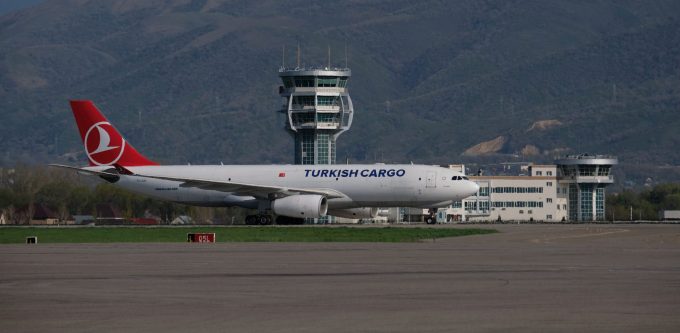Hard-hit Russian Railways hikes prices to help pay for new locos
Russian Railways (RZD) will impose a near-14% tariff hike next month in a bid to ...
UPS: MULTI-MILLION PENALTY FOR UNFAIR EARNINGS DISCLOSUREWTC: PUNISHEDVW: UNDER PRESSUREKNIN: APAC LEADERSHIP WATCHZIM: TAKING PROFITPEP: MINOR HOLDINGS CONSOLIDATIONDHL: GREEN DEALBA: WIND OF CHANGEMAERSK: BULLISH CALLXPO: HEDGE FUNDS ENGINEF: CHOPPING BOARDWTC: NEW RECORDZIM: BALANCE SHEET IN CHECKZIM: SURGING
UPS: MULTI-MILLION PENALTY FOR UNFAIR EARNINGS DISCLOSUREWTC: PUNISHEDVW: UNDER PRESSUREKNIN: APAC LEADERSHIP WATCHZIM: TAKING PROFITPEP: MINOR HOLDINGS CONSOLIDATIONDHL: GREEN DEALBA: WIND OF CHANGEMAERSK: BULLISH CALLXPO: HEDGE FUNDS ENGINEF: CHOPPING BOARDWTC: NEW RECORDZIM: BALANCE SHEET IN CHECKZIM: SURGING

Violent protests and subsequent failure of Kazakhstan’s internet and telephone services has caused problems for trucking and air cargo in this crucial land-bridge for logistics services between Asia and Europe.
One domestic project forwarder told The Loadstar the airport in Almaty – its commercial capital – had to close due to the civil unrest, which began on 3 January, but passenger and cargo flights have resumed.
“We had to arrange a charter flight on short notice to Atyrau, carrying urgent cargo for the biggest oil field here in Kazakhstan,” he explained. “Three days before the flight, suddenly we had no communication with the rest of the world – just good partners and a belief that we could pull it off.
“Border movements and trucking through Almaty has also been very difficult; it was a four-day nightmare in the city,” he added.
However, the record-breaking China-Europe rail freight services have so far been unaffected by the troubles. According to Chengdu-based New Silk Road Intermodal (NSRI): “News from terminals in Dostyk and Altynkol proves that operations are running smoothly and trains continue to be reloaded and dispatched regularly.
“However, to ensure the safety of trains, they are being rerouted within Kazakhstan. Tracking information may have some delays due to the disrupted networks.”
Meanwhile, NSRI said, trains were departing mostly on time from Chinese hubs, but trains from Russia were experiencing slight delays.
The key European transit hubs of Mala and Kaliningrad remain the major congestion hotspots, the forwarder noted, each experiencing delays of up to two weeks, while some trains have been stuck in Belarus for more than 10 days.
Last year’s China-Europe rail volumes were up 29%, to 1.46m teu, according to China State Railway, a new record. But the booming volumes did cause a number of bottlenecks during the year, however, especially at border crossings, with transit times extending significantly.
As a result, stakeholders have called for a focus on “quality over quantity”, given that Chinese subsidies are due to be phased out.
Comment on this article